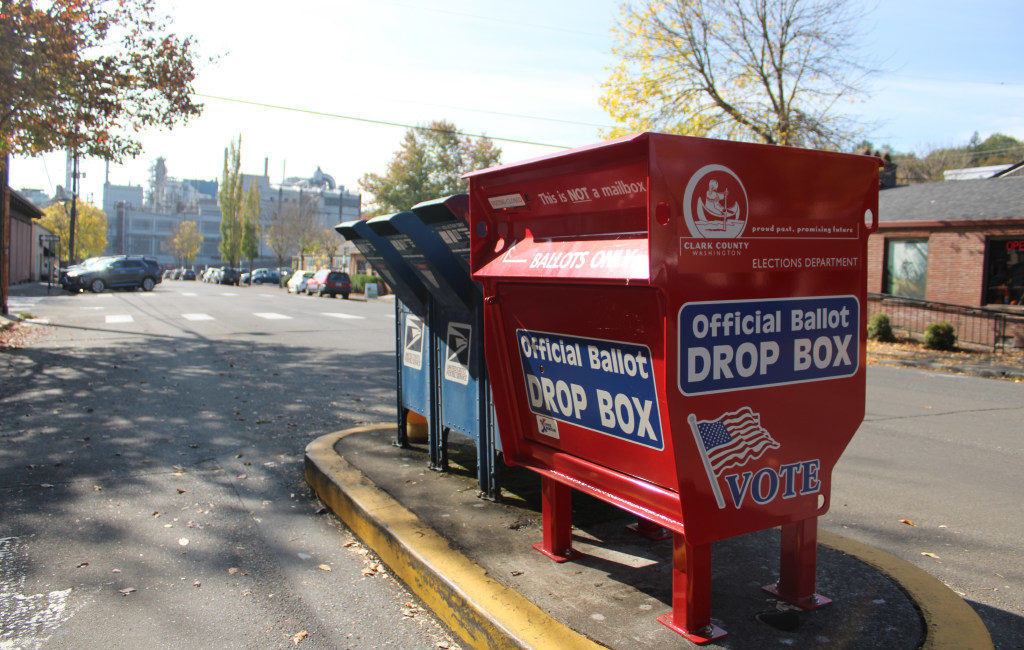Clark County GOP says ranked choice voting not what county needs

Last December, the Clark County Charter Review Commission voted 11-4 to put ranked choice voting on the November 2022 ballot. The charter amendment would apply to county elected officials only. The measure is part of a larger effort by FairVote Washington, a nonpartisan nonprofit based in Bothell that focuses on election reforms. The measure has already drawn opposition, most notably from the Clark County Republican Party.
At its July meeting, the party’s executive board voted to oppose the ranked choice voting measure.
“The vote was unanimous,” Chair Joel Mattila said in a press release. “With a little research, the many problems with ranked choice voting become obvious.”
It was 17th Legislative District Chair Tom Tangen who made the motion to oppose the measure.
“The average voter needs to know that ranked choice voting increases the cost of an election, will add a number of days, possibly over a week, to learn the winner of some races, and in its complexity would create more concern as to the integrity of our election process,” Tangen said in the release. “NAACP members along the East Coast have raised concerns that this type of voting is discriminatory. Pierce County tried it, and quickly got rid of it. This is the last thing Clark County voters need.”
There’s no denying ranked choice voting is more complex than a traditional ballot. Instead of voting for a single candidate, ranked choice voting lets voters rank candidates in order of preference, i.e., first, second, third, etc.
If a candidate wins a majority of first-preference votes, he or she wins that race. If no candidate wins outright, the candidate with the fewest first-preference votes is eliminated from consideration and the second-choice votes from ballots for the eliminated candidate are applied to the remaining candidates.
If that doesn’t give one of the remaining candidates a majority, the process is repeated until one does.
FairVote Washington officials say the benefits still outweigh the additional effort and possible confusion.
Speaking at FairVote’s March campaign kickoff, former U.S. Rep. Brian Baird said, “The issue has to be about, is this good for our democratic republic form of government. Will it lead to more citizen engagement? Will it help elect people who can work together, who can solve problems? Will it reduce the tone of antagonism and hatred, even, and bring people together? I think ranked choice voting will do that.”
Baird was the 3rd District representative from 1999 to 2011.
Several other states already have ranked choice voting in place for federal or state elections. For example, Alaska allows ranked choice voting for federal and state elections while Maine uses it in federal elections and municipal elections in Portland. Hawaii enacted legislation in 2022 allowing ranked choice voting in federal elections starting next year. Additionally, some cities in California, Colorado, Maryland, Michigan, Minnesota, New Mexico, New York, Utah and Virginia are already using the unconventional voting method.
Bills were also introduced in both the Washington House of Representatives and Senate during the 2022 legislative session to allow ranked choice voting in county, city, school district, fire district and port district elections but failed to pass before the session cutoff date. State Sen. Ann Rivers, R-La Center, introduced a bill this session to allow ranked choice voting in presidential primary elections but that bill, too, failed to pass.
For more information about FairVote Washington’s ranked choice voting initiatives, go to https://fairvotewa.org.
— Shari Phiel
